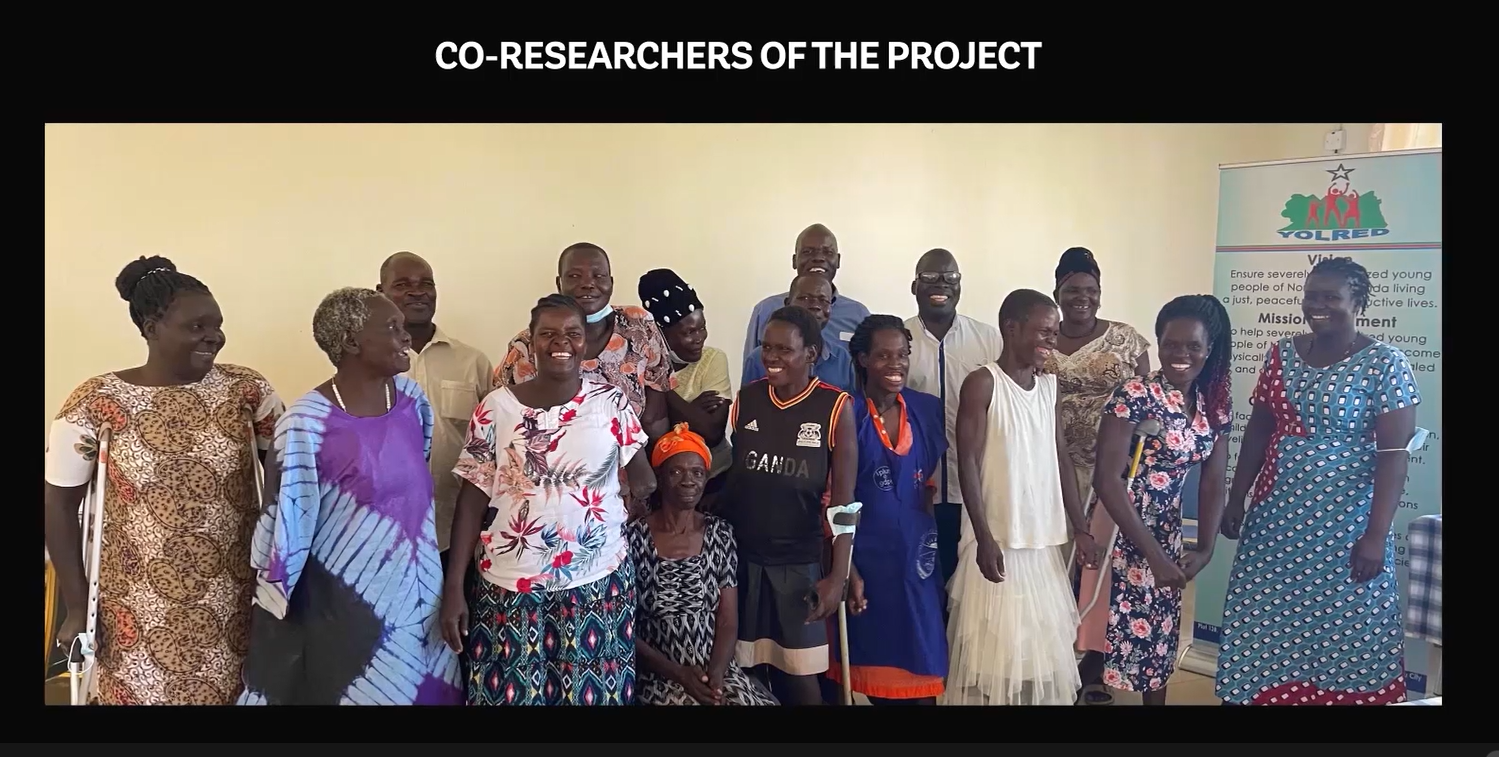International Day of Persons with Disabilities is a UN observed day which aims to mobilise support for the dignity, rights and well-being of peoples with disabilities, and to promote greater understanding of disability issues.
The policy report and accompanying animation published by the University of Bristol Human Rights Implementation Centre (HRIC) and YOLRED today are reflective of this year’s International Day of Persons with Disabilities theme: innovation and transformative solutions for inclusive development, with a strong emphasis on disability inclusion.
The University of Bristol’s Dr Jassi Kaur Sandhar was lead researcher and project manager for this research, with oversight and guidance provided by HRIC Director Professor Rachel Murray.
As part of the project, the team has launched an animation produced by sixteen PWD who were co-researchers and co-producers of the project. Narrated by the co-researchers, the four characters featured in the animation are an amalgamation of the sixteen co-researchers, describing their experiences of living in Northern Uganda as People with Disabilities during COVID-19.
The policy report and animation underline the importance of not just including people with disabilities in all spaces, but ensuring they lead and guide these spaces and are front and centre of decision-making on disability policy and programming.
“I have a physical disability and I want to say that during corona we face a lot of stigma. There is nogenuine sales that we [can] make and following the SOPs, we are to stay home…there are some leaders who were elected to represent the PWDs in parliament but there is no information being given back to us regarding our opinions in the communities, therefore, we request the government to put an organisation that can speak and help with [disability] issues.” (co-researcher, woman, aged 39).
To conduct the research for this project, innovative participatory action-based workshops were utilised, led by the sixteen PWD in Northern Uganda who were employed on the project as co-producers and co-researchers from July 2021 to August 2022. Their involvement included a series of data collection workshops, planning dissemination events, attending and participating at civil society outreach activities, and during the stakeholder meetings.
The co-researchers were aged between 19-70 and comprised of twelve women and four men; a greater proportion of women were included to support sustainable development goals 5 (gender equality) and 10.2 (reduced inequalities). All co-researchers and project team members were paid the same during the data collection and dissemination workshops, to ensure an equitable distribution of resources. The local language, Acholi, was used to maximise participation and enhance understanding of concepts related to research processes, but also to ensure the project – and solutions – would be localised.
Following data collection and preliminary analysis, two local events were organised in Gulu, Northern Uganda – during which co-researchers presence and participation was integral – to share the findings and animated video.
The first was a civil society engagement event which brought together disability-led or inclusive NGOs and CSOs based in Gulu to engage more voices from disabled populations in the region and to garner support for collective action.
The second event brought together key local actors and stakeholders (including parliamentary representatives and politicians, human rights bodies, public health professionals, disability activists, local religious and traditional leaders, and CSOs) to share the findings and propose the recommendations for bodies at different levels, to obtain support for PWDs and ensure their inclusion in policies and strategies as Uganda begins to ‘build back better’.
The findings and recommendations within the policy report were developed following the data collection workshops and stakeholder dissemination events, andproposed by the sixteen co-researchers to ensure disability-inclusive and centred pandemic recovery solutions.
The policy report documents the experiences of the co-researchers, which could be applicable for much of the wider disabled community in Northern Uganda, as well as disabled populations in other war-affected contexts – and includes recommendations for academics and researchers, politicians and policymakers, and community members.
- Read the full policy report here:“The response to Covid-19 in Northern Uganda should be disability-inclusive."
Acknowledgements: This work was supported by the Arts and Humanities Research Council [grant number AH/V013432/1] as part of the Global Challenges Research Fund. It is part of a wider network of 8 AHRC-funded GCRF projects on COVID-19 and disability in Low- and Middle-Income Countries.
